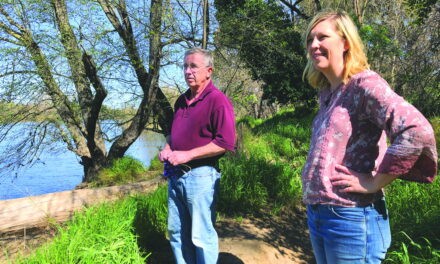Nine Bosses
City manager refutes claim about power
By Howard Chan
October 2020
In times of crisis, trust is the city of Sacramento’s most valuable commodity. This is true when it comes to fires, floods or COVID-19. Residents put their trust in city officials and staff to respond quickly, efficiently and effectively to help people in need.
As city manager, I am proud of the work the city has done to protect and support all Sacramentans during one of the most challenging chapters in our history.

Since the onset of the pandemic, the city has successfully rolled out nearly $80 million to assist our community. We have distributed more than 1.2 million masks to local businesses, organizations, hospitals and schools, and served nearly 280,000 meals to seniors.
We are providing forgivable loans to 1,400 local businesses and free internet to 10,000 households to assist with online education. We are offering workforce training to 11,000 people whose jobs have been affected by the pandemic. In partnership with Sacramento County, we have sheltered more than 1,200 people experiencing homelessness.
These are just a few examples of what the city has accomplished over the past six months. (For more information about the dozens of programs Sacramento has launched in response to the pandemic, visit sacramentocovidrelief.org.)
Which brings me back to trust. Trust is a relationship built over time, one that relies on words aligning with actions and deeds. I am hopeful that the city’s comprehensive response to the coronavirus—led by the City Council and executed by city staff—has furthered community trust in local government.
But what is the best form of government for Sacramento, both in times of crisis and blue-sky days?
Is the current City Council-City Manager structure the right one? Or should the City Charter be amended to provide more executive power to current and future mayors, the only city official elected citywide?
Residents now have a chance to weigh in on these questions when they vote on Measure A, also known as the Sacramento Mayoral Accountability and Community Equity Act of 2020.
The pros and cons of this measure are being debated in the pages of many publications, including Inside Sacramento. I will leave it to others to make arguments for and against.
I have been asked many times where I stand on Measure A. My answer has been consistent: As city manager, I am focused on the urgent issues at hand and leave it to the people of Sacramento to decide what form of governance is best for them.
However, in the spirit of trust, I feel compelled to make one point that pertains to my position. A recent Inside Sacramento op-ed supporting Measure A stated, “… under our current system of governance, the buck stops with the city manager, who is not elected by the voters, rather than the mayor.”
This simply is not true. As city manager, I report directly to all nine councilmembers, which includes the mayor. They can direct me in any way they see fit, and they do so on a regular basis. They hired me and they can fire me. I am accountable to them. That is the system.
To suggest my actions do not represent the will of the council or that the council is not the highest authority not only does a disservice to the councilmembers, it does a disservice to voters as well.
Truth and transparency are essential to trust. They are also core values of the city of Sacramento. I encourage everyone to participate in our democracy and cast their vote on this measure as well as other important issues facing our city.
Howard Chan is Sacramento city manager. He can be reached at hchan@cityofsacramento.org.









